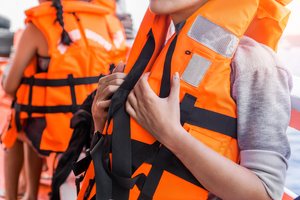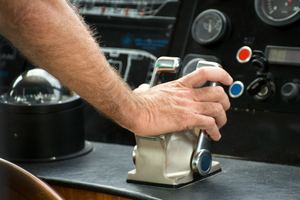While there are several steps involved before you can throw off the bowlines - such as inspections, insurance, and paperwork - buying a boat is definitely within reach. As Mark Twain famously said, it’s to explore, dream, and discover. So, why not?
Sometimes, you need to embrace spontaneity and seize the moment. Picture this: you're with family and friends on a sunny day, strolling by a marina, and you spot the perfect boat for sale. It’s exactly what you’ve always dreamed of—a boat for enjoying days on the water, relaxing, and exploring. If it feels right, and the size and look are spot-on, as Nike says, "Just do it." Everything else can follow. If the opportunity seems perfect, go for it.
YachtBuyer's advice is here to help you get to the moment when you step onboard and set sail. Our Guides and Advice can assist with everything from marine surveys and insurance to market comparisons and registration.
Documentation and Registration
To ensure you're buying a fully documented boat without legal or financial issues, verify the following paperwork before closing the deal: the Bill of Sale, current insurance documentation, and registration documents to confirm that the seller is the rightful owner or their representative. If the boat is for sale at a marina, check with the marina office or harbourmaster, as they are likely familiar with both the boat and its owner.
If recent survey records are available, contact the marine surveyor to ask questions and consider arranging a pre-purchase inspection before finalizing the payment. Further details on marine surveys are covered later in this article.
Registration
To register a boat in your name, you will need the original documentation. This is why the documentation is your top priority when meeting with the seller.
No documentation, no deal.
Bill of Sale
This document, signed by both the seller and buyer, includes details of the boat and the purchase price. Ideally, all Bills of Sale from the boat’s history should be available to check for any gaps in ownership and to ensure everything is in order.
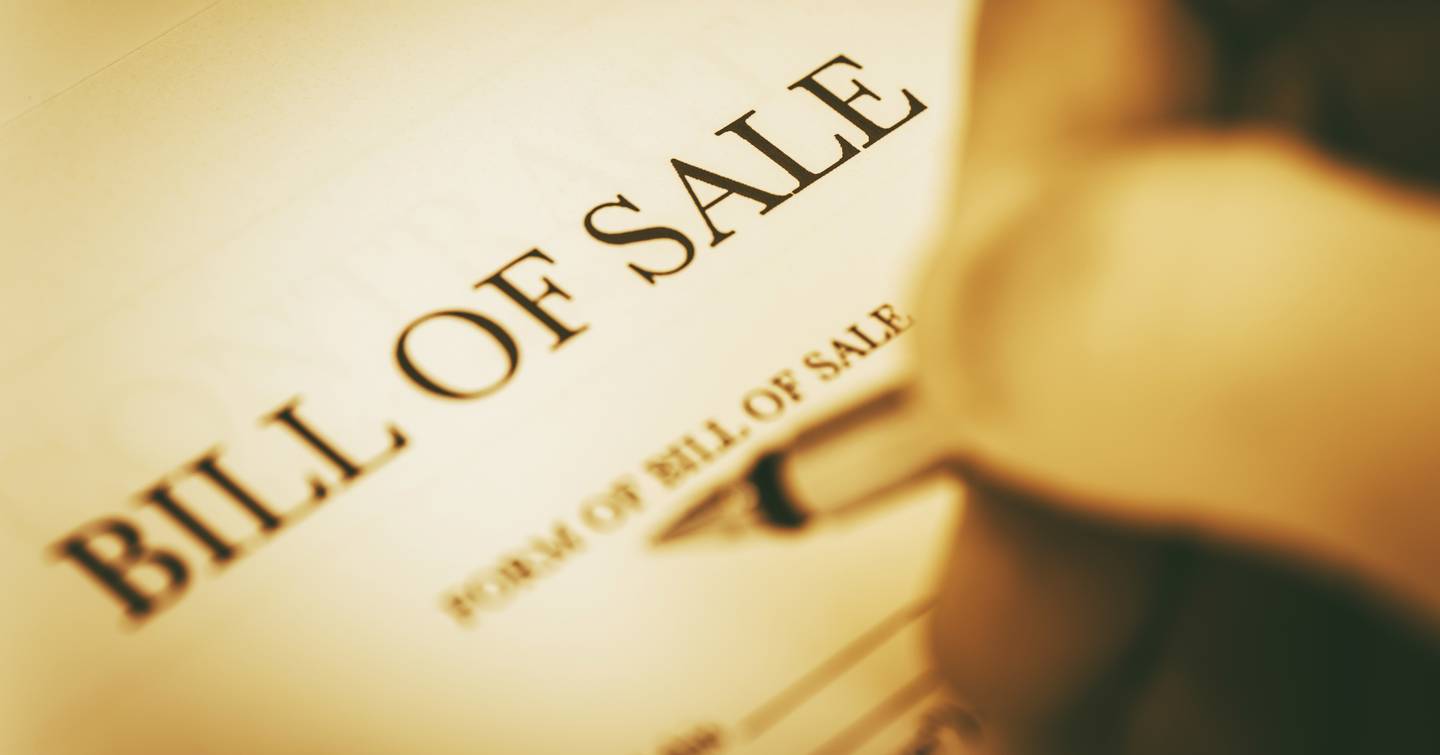
Proof of Ownership
Ensure you receive the original boat registration document so it can be transferred to your name.
Registration with Authorities
For boats in British waters, the new owner should register with the Maritime and Coastguard Agency (MCA) under the Small Ships Register (SSR).
Whereas in the USA, Coast Guard registration is mandatory for commercial vessels and recreational boats are registered at the state level, so the new owner should register the boat with their state’s department.
Registration Fees
Fees vary depending on the registration service and must be paid to complete the registration process for all boats.
Ensure the seller provides a full inventory to confirm what is included in the sale. This inventory should detail all equipment, accessories, and any additional items that come with the boat. Having a comprehensive list will help you verify that everything you expect is included and avoid surprises later.
There may be other items onboard that need to be transferred to your name, such as a VHF/DSC radio set.
For larger and more technologically advanced boats, there may be more equipment to register. We provide a link to the YachtBuyer Kit Registration article for further details.
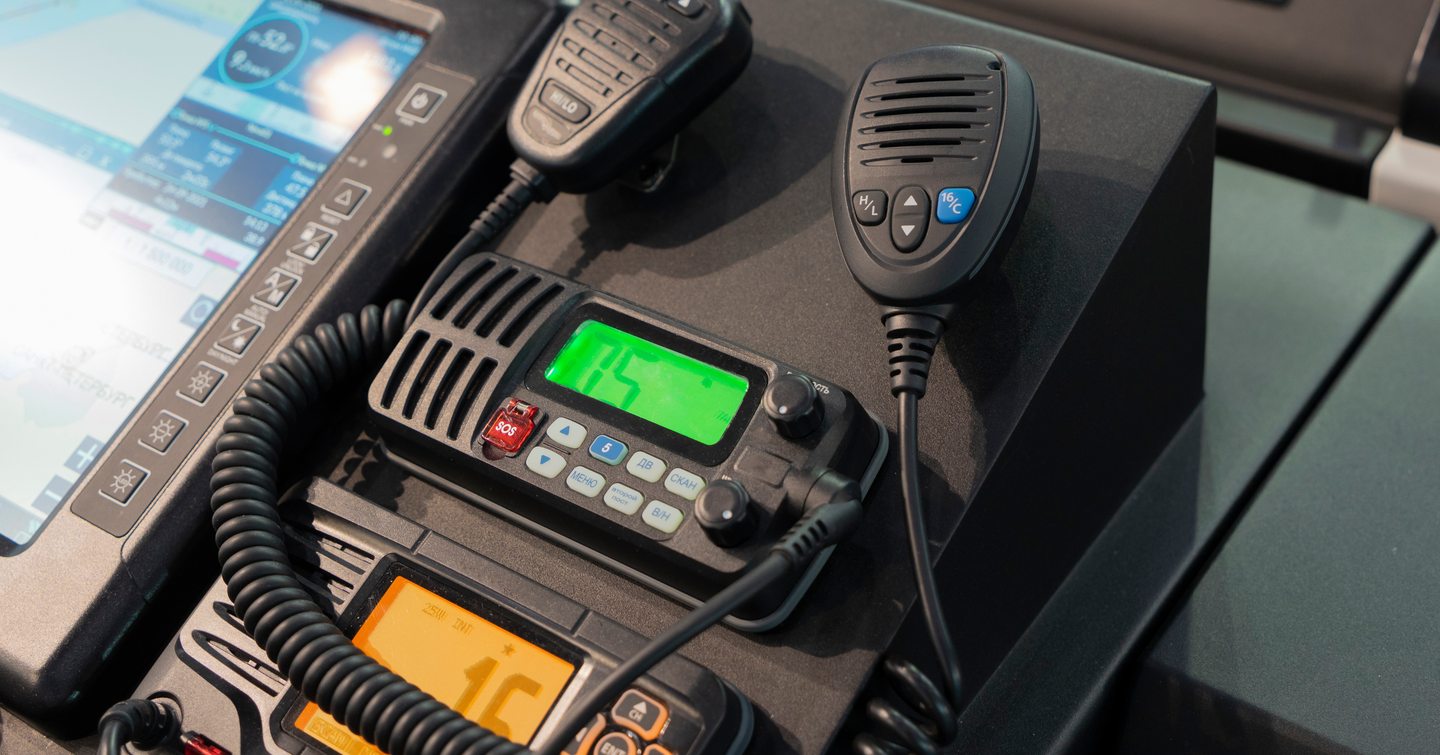
Again we provide the references for the UK and the USA as examples, in the UK, the Maritime and Coastguard Agency (MCA) and Ofcom (the Office of Communications) manage the Ship Radio License system to ensure the radio onboard is licensed and registered in your name. In the USA, VHF radios must be registered with the Federal Communications Commission (FCC).
Training and Certification:
Radio Operator's License: While not mandatory for recreational use, having a license like the Marine Radio Operator Permit (MROP), a Short Range Certificate (SRC), or a higher-level license is recommended for those operating VHF/DSC radios.
Marine Survey
A marine surveyor is essential in protecting you from buying a problematic boat.
Their role involves assessing and evaluating the boat's condition, safety, and value. Marine surveyors conduct detailed inspections to ensure the boat meets safety and regulatory standards, is in good condition, and is fairly priced. They examine the vessel's structure, systems, and components, and provide a comprehensive report on their findings to help you make an informed decision.
The YachtBuyer site offers verified listings, comparisons between boats of similar size, age, and performance, as well as current sales listings. Be sure to explore the site thoroughly before making your final decision.
Insurance
Yacht insurance is essential for safeguarding your investment and providing financial protection against accidents, damages, or unforeseen events at sea or in the harbor.
While some marinas and territorial waters require insurance, not all countries have mandatory regulations. However, in today's litigious environment, securing at least third-party insurance is wise. It is often necessary for marina docking and protects your financial interests.
Given the inherent risks and liabilities of yachting, having appropriate insurance coverage is a practical and responsible choice for any yacht owner, regardless of local regulations.
Premiums depend on factors such as the yacht's value, location, intended use, and the experience of the person in command.
For more detailed information on yacht insurance, visit the YachtBuyer articles below.
Mooring
Ideally, in your spontaneous decision to buy a boat, you’ll also secure a berth as part of the package.
When the sale is "berth included," you get the full package deal. If the berth is not included, consider negotiating with the seller to see if the berth can be part of the sale. Additionally, check with the marina office about transfer fees, lease agreements, and availability.
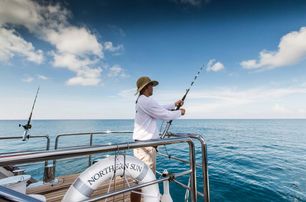


If the berth isn’t included, it may affect your initial excitement. The prospect of having a new boat without a place to dock could give you pause.
On the other hand, this might be an opportunity to find a different marina that suits your preferences—perhaps one that’s closer to home, more scenic, or nearer to your favorite fishing spot or swimming cove. Explore various marina berths and moorings to find the best fit for your needs.
Equipment and Safety
Depending on local laws, there are minimum safety equipment regulations based on the size of the boat. If the boat you are considering has been well-maintained and adheres to cruising regulations, it should already have much of the required equipment onboard. If the seller is upgrading to another boat, ask if the existing safety equipment is included.
In the USA, boats over 5m/16ft must carry at least one Type I, II, III, or V personal flotation device (PFD) for each person on board. All boats must also have a sound-producing device (horn or whistle), navigation lights if operating after dark, and a throwable flotation device. Boats 7m/23ft or longer must include a fire extinguisher and a first aid kit.
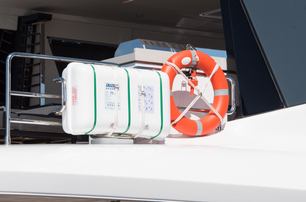
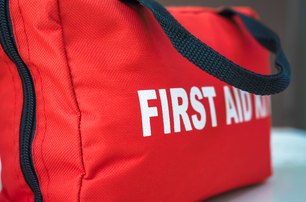
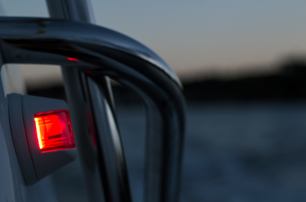
In the UK, regulations are similar but also require a manual or automatic bilge pump or other means of removing water. Boats over 7m/23ft are recommended to carry an emergency VHF radio if operating more than one mile from a safe haven.
While life rafts are, surprisingly, not compulsory, they are highly recommended for boats 10m/32ft and over, and especially for any boat operating more than three miles from a safe haven.
Training
Training improves your understanding and enjoyment of yachting. It helps prevent collisions, manage challenging conditions, and navigate safely. With proper training, you’ll handle your yacht confidently, and your family and friends will feel secure and comfortable onboard.
Consider arranging private tuition on your own yacht to master handling techniques. Additionally, many yacht insurers require a driver’s license or training certificate.
Bon Voyage
You have a boat! It might have been a spur-of-the-moment decision based on a long-held dream, but it’s now yours. With all the documentation in place, training completed, and confidence high, it’s time to cast off the lines and head out of the harbor.
Enjoy your new adventure!












